Carlos Tavares' sudden resignation: the 'cost killer' exits Stellantis
![]() 12/03 2024
12/03 2024
![]() 555
555
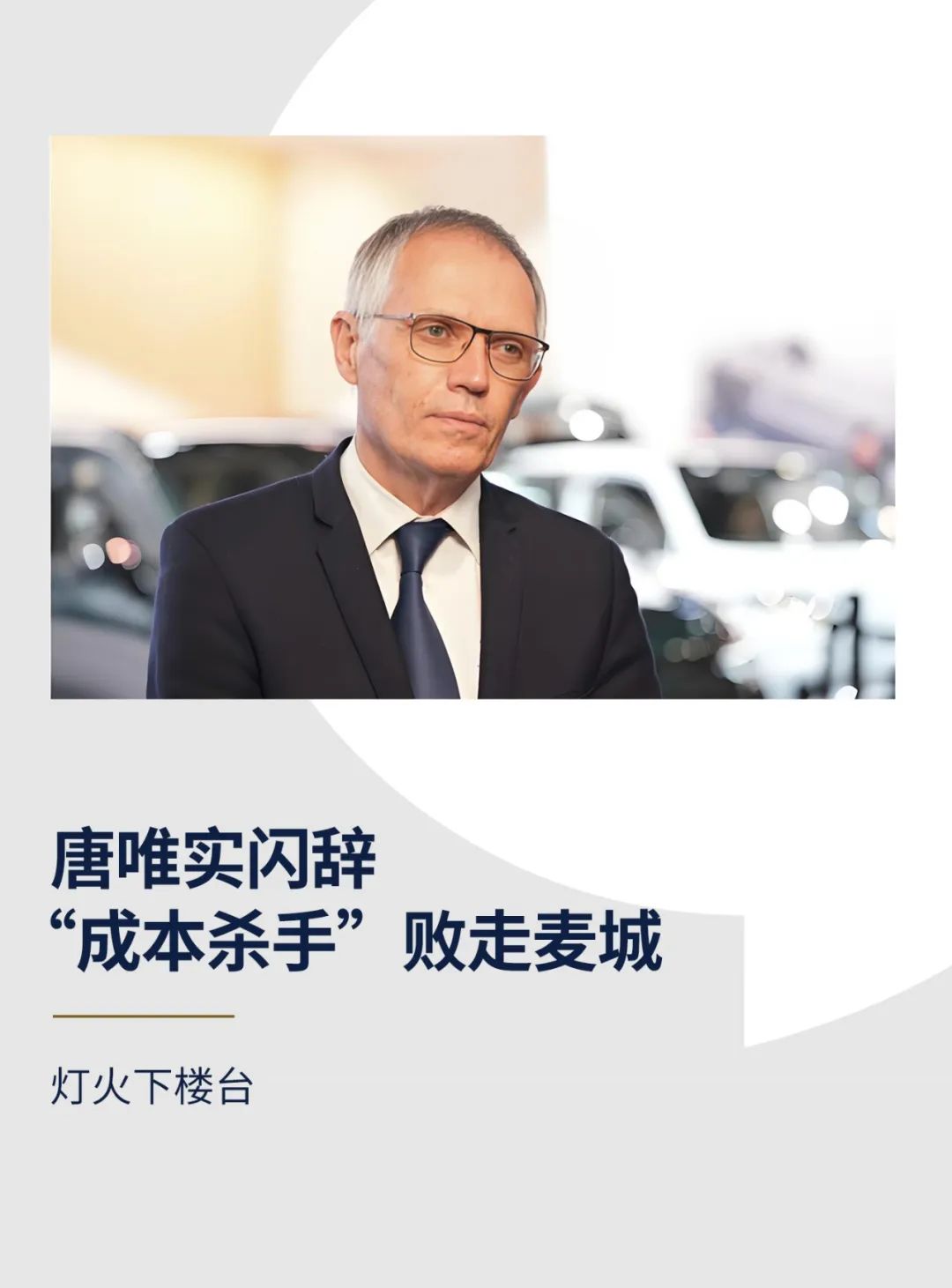
Compiled by | Yang Yuke
Edited by | Ge Bangning
Produced by | Bangning Studio (gbngzs)
Carlos Tavares, the first and only CEO of Stellantis Group, who earned €36.5 million (RMB 279 million) in 2023, has suddenly resigned.
On December 1, 2024, Stellantis Group announced that the Board of Directors had accepted Carlos Tavares' resignation, effective immediately.
The statement said that the process of appointing a new CEO was "progressing smoothly" and was expected to be completed in the first half of 2025. In the meantime, a new interim executive committee will be formed, led by Chairman John Elkann.
A Stellantis Group spokesperson declined to disclose any additional information regarding Carlos Tavares' resignation.
Although the world's fourth-largest automaker has remained tight-lipped about the reason for Carlos Tavares' sudden resignation, comments from Senior Independent Director Henri de Castries seem to hint at disagreements between Stellantis Group and Carlos Tavares.
'The success achieved by Stellantis Group since its inception stems from the perfect synergy between shareholders, the Board of Directors, and the CEO. However, differing viewpoints have emerged in recent weeks, leading to today's decision by the Group's Board of Directors and CEO,' said Castries.
This seems to suggest that the decision was made jointly by both parties following a conflict. However, no details on the cause of the disagreement have been provided yet. According to Bloomberg, the Stellantis Group Board of Directors had been meeting on December 1 and may reveal more details later.
Despite Stellantis Group's troubles, news of Carlos Tavares' resignation still came as a shock. Just over a month ago, foreign media reported that Carlos Tavares would end his five-year contract in early 2026.
A source familiar with the situation told Reuters that the Board of Directors believed Carlos Tavares had acted too hastily, focusing on short-term solutions to salvage his reputation rather than working for the best interests of the company, exacerbating tensions between the two sides.
Bernstein analysts noted that the sudden announcement on December 1 indicated that disagreements between the Board of Directors and Carlos Tavares must have been severe, as both parties would rather operate without a CEO in the short term.
With the management change, Stellantis Group's current focus is on stabilizing operations and addressing challenges in core markets. The search for a new CEO is already underway, and the Board of Directors emphasizes the importance of aligning leadership with long-term strategic goals.
In his statement, Elkann said, 'We would like to thank Carlos Tavares for his dedicated service over the years, his role in creating Stellantis, and turning around PSA and Opel, paving the way for us to become a global industry leader.'
Carlos Tavares' departure highlights the complex dynamics of leading a global automaker in a challenging economic environment. With Stellantis Group facing fierce competition, changing consumer preferences, and the transition to electrification, its next leadership chapter is crucial for its future development trajectory.
Carlos Tavares' departure marks the end of an automotive era. From former Nissan executive Carlos Ghosn to former Volkswagen Group executive Herbert Diess, to Carlos Tavares now, a generation of heroes has come to an end. Did they lose to the new automotive era, or did they lose to themselves? The discussions they spark will continue.
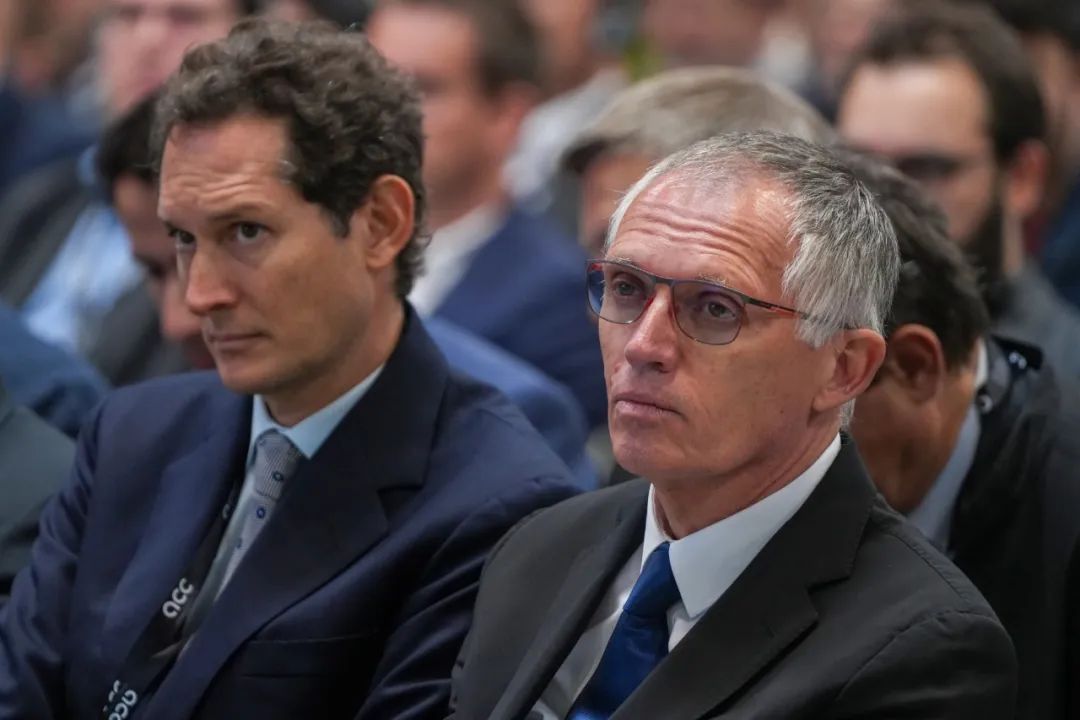

Eager to Salvage Personal Reputation
A person familiar with the negotiations added, 'There's a sense that Carlos Tavares was eager to restore his reputation, acting too aggressively without regard for the risks of creating future problems.'
Carlos Tavares rose through the ranks at Renault Group under the cost-cutting leadership of Carlos Ghosn. He has long impressed investors with his ability to turn around struggling situations where other automakers have failed.
Early in his tenure as CEO of Stellantis Group, he reduced the number of car platforms and laid off employees, hoping to replicate this success.
However, tensions escalated this year. The United Auto Workers (UAW) warned that Stellantis Group's cost-cutting practices had led to quality issues and delayed the launch of key new models. In the US, dealers accused Carlos Tavares of damaging the reputations of brands like Jeep, Dodge, Ram, and Chrysler.
Those familiar with Carlos Tavares' departure believe that due to declining sales in the US and Europe, Stellantis Group's profits announced in 2024 dropped significantly, leading to increasing tensions between Carlos Tavares and other Board members over how to get the company back on track.
Stellantis Group's share price has fallen 43% this year. 'He focused on short-term gains rather than the company's long-term interests, upsetting everyone in the process,' revealed a source familiar with conversations among Stellantis Board members.
By drastically cutting costs, Stellantis Group built a strong balance sheet. However, in September, it issued a profit warning, stating that free cash flow in 2024 would be between -€5 billion and -€10 billion.
Another person familiar with Carlos Tavares' resignation said that tensions had arisen within Stellantis Group and between the company and stakeholders, including American suppliers and dealers. In Italy and the US, some disgruntled factory workers threatened to strike after production cuts.
In October this year, due to declines in earnings and sales, Stellantis Group revised downward its 2024 profit forecast. On December 1, it reiterated that it would maintain the revised profit forecast, including an adjusted operating margin target of 5.5% to 7%.
Bernstein analyst Daniel Roeska believes that Elkann has shown 'good instincts' in selecting a new CEO. 'We expect the Board of Directors to consider both internal and external candidates, but the transition period will be difficult for company management and investors,' he said.
In July this year, Carlos Tavares dismissed concerns about Stellantis Group's performance, describing the sales decline as a 'bump in the road' and vowing to 'solve' these issues. In October, he began reorganizing the management of the group's brands, including Jeep, Maserati, and Alfa Romeo.
Analysts believe that these changes indicate that Carlos Tavares did not intend to leave before the end of his term.
At that time, he was also in conflict with the Italian government over electric vehicle subsidies, as he threatened to move some jobs from Stellantis' Italian factories overseas. An informed source revealed that angry Italian parliamentarians grilled Carlos Tavares, who was deemed lacking in 'humility' for blaming the strict regulatory environment in his response.
Just days before Carlos Tavares' resignation, Stellantis Group announced that it would suspend production of the Fiat 500 electric vehicle and two Maserati models at its Mirafiori plant in Turin in December due to weak demand.
Last week, Stellantis Group announced plans to close its van factory in Luton, putting about 1,100 jobs at risk. The closure was blamed on the UK's electric vehicle sales regulations.
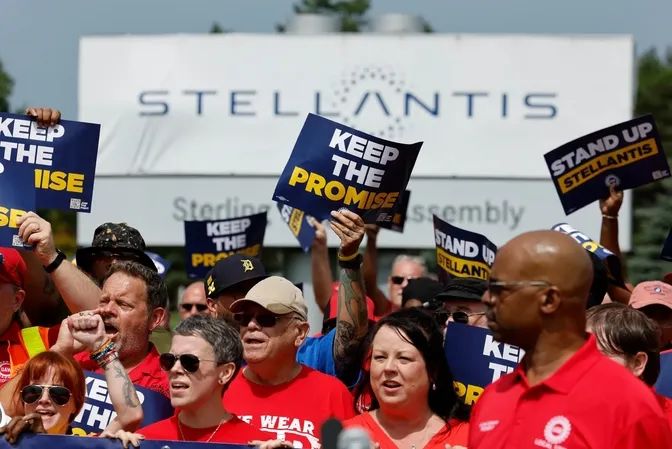

The Trigger in the US
As Carlos Tavares made the decision to resign, high prices for cars and trucks in North America led to declining sales at Stellantis Group, disappointing its traditional customer base.
In recent months, investors, dealers, and labor unions have criticized Carlos Tavares due to declining sales, outdated US model lineups, and bloated inventories, leading to a profit warning issued by the company in September.
Despite Carlos Tavares' promises to fix the problems and replacing the CFO and other executives, the company's market share continued to decline in major markets like France, intensifying concerns about Stellantis Group's prospects. Earlier this year, Stellantis Group reported a 27% drop in third-quarter net income due to a 20% decrease in global new vehicle shipments caused by longer intervals between new product launches and inventory reduction efforts.
In the third quarter, the automaker's net income was €33 billion (USD 36 billion), a decrease from €45 billion in the same period last year. Revenue fell by double digits in all regions except South America, with a 42% drop in North America to €12.4 billion and a 12% decline in Europe to €12.5 billion.
In the first half of this year, Stellantis Group's global sales fell by 10%, with a steeper 20% drop in the third quarter. Sales in the US declined by 17% in the first nine months of the year. Industry experts analyzed that the average prices of Jeep, Ram, Dodge, and Chrysler vehicles were too high for the core customer base of these brands. According to automotive website Edmunds, the average selling price of a Stellantis vehicle in the US was USD 58,000 by the fourth quarter of 2023. Although the average price has declined since then, it remains the second-highest in the industry.
Carlos Tavares made cost-cutting a priority for Stellantis Group, including a promised post-merger cost reduction of €8.4 billion (USD 9 billion). Cost-saving measures included reshaping the company's supply chain and operations, reducing the US workforce, and increasing jobs in low-cost countries like Brazil and Mexico.
Several former and current Stellantis Group executives have previously stated, anonymously, that the layoffs were exhausting and even excessive, contributing to problems in the US.
Carlos Tavares refuted claims that the company's large-scale cost-cutting efforts had caused issues. 'When you don't deliver for any reason... you might want to find a scapegoat. It's easy to cut budgets; it's just wording,' he said in July.
Public documents show that from December 2019 to the end of 2023, Stellantis Group's workforce decreased by 15.5%, or about 47,500 employees. This year, Stellantis further reduced its workforce in the US and Italy, involving thousands of workers, angering trade unions in both countries.
For months, the UAW has called for Carlos Tavares' dismissal due to layoffs and production cuts affecting its members. Stellantis Group's US dealer network has also publicly opposed Carlos Tavares due to excess inventory and a lack of financial support for vehicle sales.
This summer, Carlos Tavares admitted at an investor day that he had been 'arrogant' and failed to address the difficulties faced by Stellantis Group in the US earlier.
In September this year, the Stellantis National Dealer Council in the US sent an open letter to Carlos Tavares, accusing him of allowing Jeep, Ram, Dodge, and Chrysler to 'rapidly degrade.' The letter read, 'Your brands' market share has nearly halved, Stellantis Group's share price has plummeted, factories are closing, layoffs are rampant, key executives are fleeing the company. Investor lawsuits, supplier lawsuits, strikes – the consequences are getting worse. Your own distribution network, your dealers, are in a state of anemia and decline.'
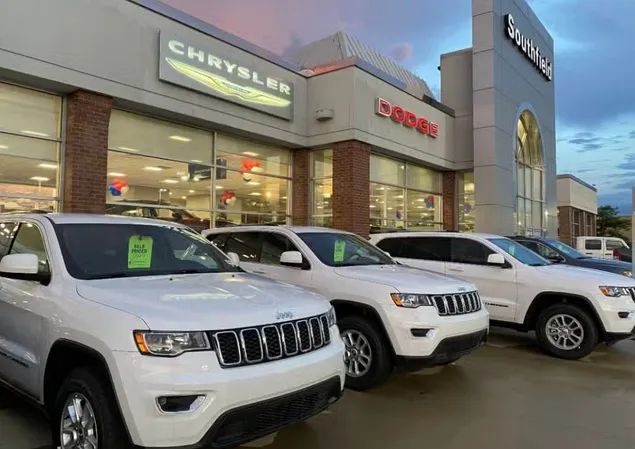
In recent months, Carlos Tavares has also been frank about some mistakes within Stellantis Group. He attributed Maserati's slow sales to poor marketing and summarized quality issues at the Sterling Heights plant, where too many Ram trucks required repairs after leaving the assembly line.
Another issue was excess inventory. Stellantis Group attempted to address this by better matching production with demand.
Just weeks before his resignation, Carlos Tavares said that struggling brands would have a few years to save themselves or be eliminated or sold. Stellantis Group's 14 brands were fully funded through 2026, so brands like Lancia and Chrysler were safe until then.
Moreover, two months ago, Stellantis Group appointed new CEOs for Maserati and Alfa Romeo.
This is just the tip of the iceberg. Given its strong profits in 2023, Stellantis Group paid Carlos Tavares €36.5 million. Such compensation has also sparked strong criticism from the outside world.
'The UAW welcomes the resignation of Stellantis Group CEO Carlos Tavares,' the UAW wrote in a statement. 'This is an important step in the right direction for a company that has been mismanaged and where employees have long been treated unfairly. We are pleased to see that Stellantis Group has responded to pressure and corrected its course.'
Carlos Tavares' outspoken style often put him at odds with peers, including American labor unions and the Italian government, which complained about his decision to reduce car production in Italy.
In the US, the United Auto Workers union threatened a nationwide strike, claiming that Stellantis Group had failed to fulfill contractual commitments finalized last year. Stellantis Group stated that it complied with the labor agreement. UAW President Shawn Fain said, 'Carlos Tavares leaves behind a trail of painful layoffs and overpriced cars.'
In Italy, Stellantis Group has suspended factory production multiple times this year, leading to the first nationwide auto workers' strike in 20 years and tense relations with politicians in Rome. In October, Tavares delivered a fiery testimony before the Italian Parliament, criticizing the country's high production costs and lack of incentives for consumers to purchase electric vehicles.
Jeff Laethem, a dealer who owns a Stellantis dealership in Detroit, breathed a sigh of relief upon hearing news of Tavares' resignation. It has been a difficult time for him, with growing inventories and declining sales of once reliable cars.
'It couldn't get any worse.' Laethem said, noting that nearby General Motors dealers are not facing the same challenges.
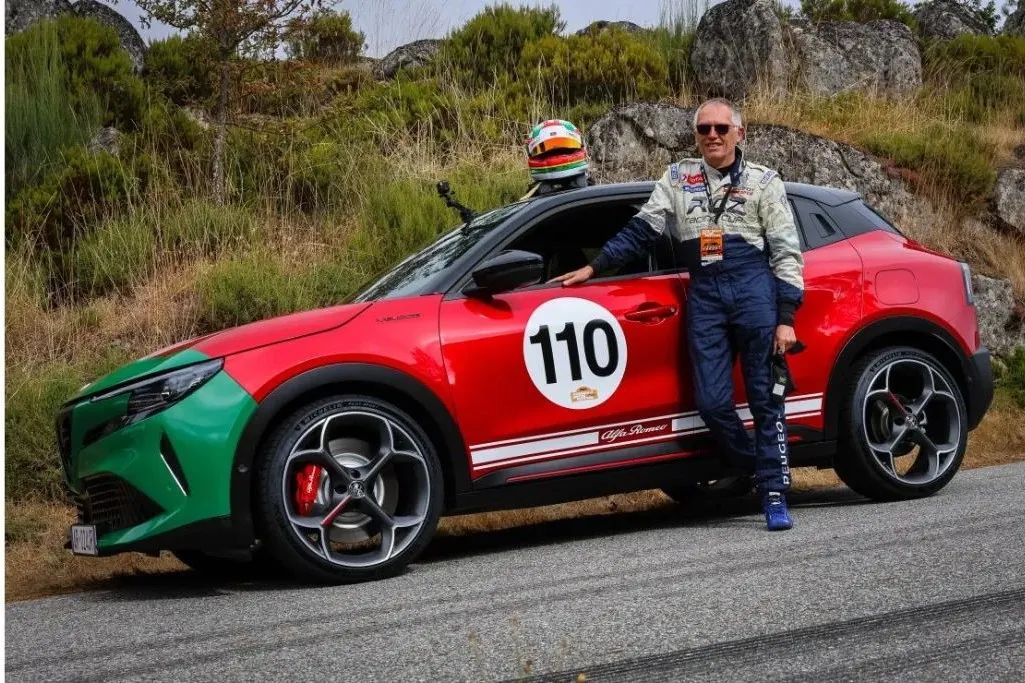

Carlos Tavares, regardless of his facets, remains a compelling figure in the automotive industry. The protégé of former Nissan executive Carlos Ghosn and former CEO of Stellantis Group, Tavares played a pivotal role in shaping the world's fourth-largest automaker.
Carlos Tavares, 66, is a Portuguese national. Born on August 14, 1958, in Lisbon, Portugal, he has developed into an experienced automotive executive with over 40 years in the industry.
Tavares graduated from the prestigious École Centrale Paris and began his career at Renault Group in 1981, holding various engineering and management positions. He has held senior roles at both Renault and Nissan, known for his sharp focus on cost control, turning around struggling companies multiple times.
In 2014, Tavares became CEO of PSA Group and played a crucial role in its transformation. Through a change strategy, he turned the company from near bankruptcy to profitability within a few years. During his tenure, PSA Group achieved several milestone achievements, including acquiring Opel from General Motors and creating the DS Automobiles brand, targeting the premium market.
In 2021, Tavares led the merger of FCA Group and PSA Group to form Stellantis Group, the world's fourth-largest automaker, encompassing 14 brands including Chrysler, Jeep, Ram, Dodge, Fiat, Peugeot, Opel, and Maserati.
Even during the COVID-19 pandemic, Stellantis Group remained profitable, outperforming competitors General Motors and Ford Motor Company. Tavares' vision and operational strategy enabled the company to achieve a record profit of €18.6 billion in 2023.
Under Tavares' leadership, Stellantis Group experienced highs and lows. Positively, Tavares successfully streamlined operations, reduced costs, oversaw the transatlantic merger, and created a global automotive giant. However, he was also criticized for failing to address challenges in key markets like the US, where brands like Jeep and Dodge struggled to remain competitive.
During Tavares' tenure, Stellantis Group undertook several bold initiatives. One of his significant decisions upon taking office was to accelerate the transition to electric vehicles. Stellantis Group is heavily investing in electric vehicle production, aiming for all brands to have a diverse portfolio of electric vehicles by 2030.
Tavares also emphasized reducing Stellantis Group's carbon footprint, aiming for carbon neutrality by 2038.
In addition to promoting sustainability, Tavares focused on streamlining Stellantis operations, driving significant restructuring efforts focused on cost-cutting and improving operational efficiency. Despite these efforts, Stellantis Group faced significant challenges in the North American market, with sales and profits falling short of expectations.
The tension between cost-cutting measures and maintaining product innovation ultimately led to Tavares' earlier-than-expected resignation.
Tavares values his privacy, keeping much of his personal life confidential. He rarely speaks publicly about his family or wife. He prefers not to draw attention to his personal life, in contrast to his public persona as a CEO frequently in the media.
However, Tavares' passion for automobiles is no secret. An avid racing enthusiast, he has participated in over 500 races to date. While details of his personal car collection are not widely known, his deep interest in high-performance vehicles and the engineering behind them is well-documented. His love for cars aligns with his professional role.
(This article incorporates reports from Automotive News, France 24, Motor 1, Merca 2.0, Financial Times, Reuters, Protect NFM, WSJ, and CNN, with some images sourced from the internet)






